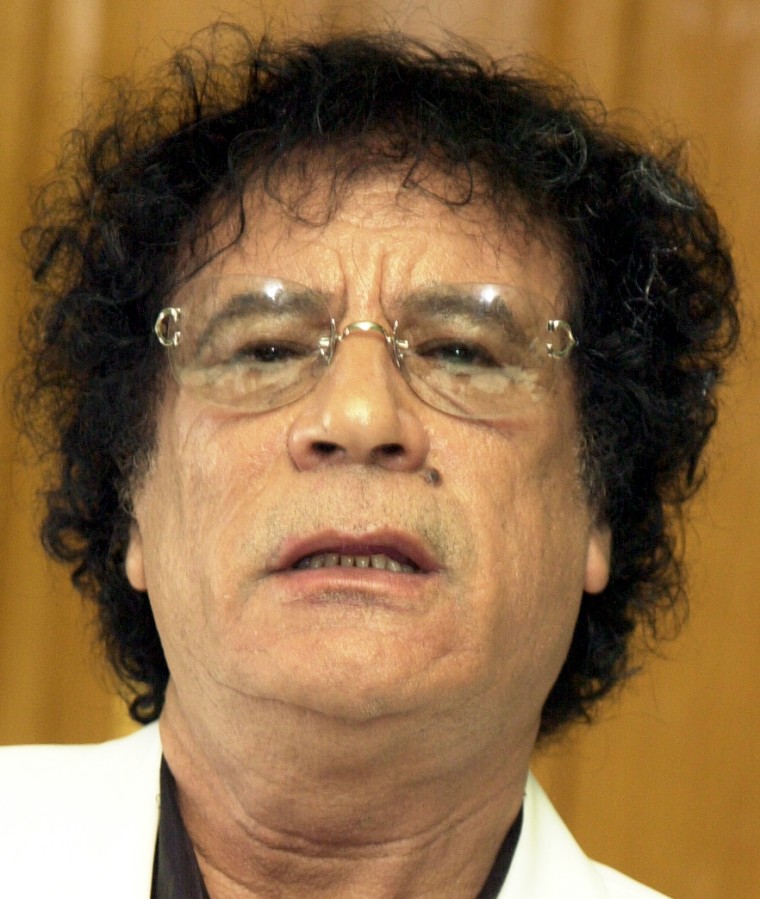The United States resumed direct diplomatic ties with Libya on Monday after a 24-year break, even as the Bush administration pursued reports that Libyan leader Moammar Gadhafi had taken part in a plot to assassinate Saudi Arabia’s crown prince.
The announcement was made in Tripoli by Assistant Secretary of State William J. Burns, after talks with Gadhafi, and also at the State Department.
Burns inaugurated a new U.S. liaison office in Tripoli in what was the latest move by the Bush administration to reciprocate for Gadhafi’s promise in December to dismantle his chemical, biological and nuclear weapons programs.
Meeting with Gadhafi
The renewed diplomatic ties come amid concerns of the rumored assassination plot against Saudi Crown Prince Abdullah. Two senior Bush administration officials held an unannounced meeting Monday with Gadhafi concerning those reports.
“I think we made clear our concerns about the story, as well as reminding Libya of its assurances not to use violence for political objectives,” State Department spokesman Adam Ereli said about the meeting in Tripoli.
Such activities have made Gadhafi’s Libya a longtime fixture on the State Department’s list of terrorism-exporting countries.
The American officials who met with Gadhafi were Burns, who is in charge of Middle East policy, and J. Cofer Black, head of the department’s office that deals with policy against terrorism.
Bush sends ‘a message’
President Bush, speaking with reporters this month after the G-8 summit in Georgia, confirmed that U.S. investigators were looking into reports of a plot against Prince Abdullah to try to establish its veracity.
“When we find out the facts, we will deal with them accordingly,” Bush said. “I have sent a message to him (Gadhafi) that if he honors his commitments to resist terror and to fully disclose and disarm his weapons programs, we will begin a process of normalization, which we have done. We will make sure he honors his commitment.”
State Department spokesman Richard Boucher said Libya had given repeated assurances not to use violence to settle political disputes after the United States received reports last year of Libyan contacts with Saudi dissidents threatening the Saudi royal family.
The State Department underscored concerns about the possibility of lingering terrorism in Libya on Monday when it released a travel warning advising Americans traveling there “to exercise caution.”
“Although Libya appears to have curtailed its support for international terrorism, it may maintain residual contacts with some of its former terrorist clients,” the warning said.
Plot revealed by U.S. prisoners
The alleged plot against Abdullah was revealed separately by Abduraham Alamoudi, an American Muslim leader jailed in Alexandria, Va., on federal charges of having illegal financial dealings with Libya; and by Col. Mohamed Ismael, a Libyan intelligence officer currently in Saudi custody.
Abdullah is Saudi Arabia’s de facto ruler in the absence of King Fahd, who is gravely ill.
Ereli said Monday that if the reports prove true, “it would call into question continued development of relations with Libya.” The United States and Libya have been reconciling at a fast pace since Gadhafi agreed in December to dismantle his programs to develop nuclear, chemical and biological weapons.
Asked what Gadhafi had told the two U.S. officials about the plot reports, Ereli said, “I don’t have that level of detail. ... We do not have enough to make a conclusive judgment, I think, one way or the other.”
